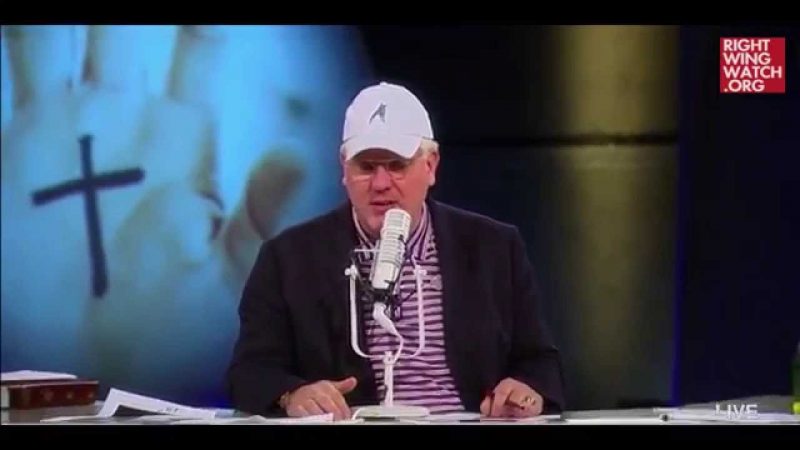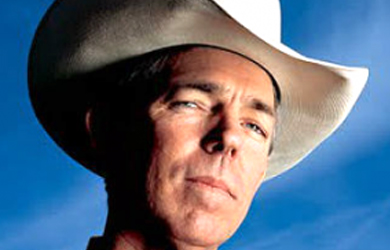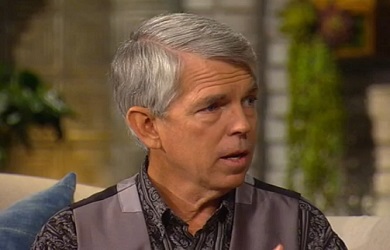As we have noted before, actual historians tend to agree that David Barton is not a historian but rather a Religious Right activist who intentionally misrepresents history in order to promote his political agenda.
And with every presentation he delivers, Barton just reinforces that fact.
For instance, Focus on the Family ran a two-day broadcast last week featuring one of Barton’s presentation in which he made the following assertion:
You see, even in previous generations, we fully expected our military and our political leaders to be highly religious. You’ve probably seen lots of pictures of George Washington kneeling in prayer. And the reason you’ve seen so many of them is there’s so much evidence to that. You have so many eyewitness testimonies of … of people like General Henry Knox and people like General John Marshall and people like General Marquis de Lafayette. You’ve got the eyewitness testimony of all sorts of congressional leaders, Charles Thompson, etc. You’ve got the testimony of his own children, his own family, his own ministers.
There’s so much out there and isn’t it interest … interesting that today George Washington has become one of our leading deist Founding Fathers? “Why, he didn’t even believe in God. He wasn’t religious.” Now why that? Well, you find that, that has a great impact on public policy. You see you wouldn’t really want it to appear that someone with the credibility of George Washington might actually endorse public religious expressions. So, what we do is make him into a nonreligious individual.
People probably have seen pictures of Washington praying, especially since Barton himself used it as the cover for his book “America’s Godly Heritage”:

But, as Professor John Fea explained, the incident featured in the painting probably never happened:
There is one major problem with Potts’s story of Washington praying at Valley Forge – it probably did not happen. While it is likely that Washington prayed while he was with the army at Valley Forge in the winter of 1777-1778, it is unlikely that the story reported by Potts, memorialized in paintings and read to millions of schoolchildren, is anything more than legend. It was first told in the seventeenth edition (1816) of Mason Lock Weem’s Life of Washington. Weems claimed to have heard it directly from Potts, his “good old FRIEND.” Potts may have owned the house where Washington stayed at Valley Forge, but his aunt Deborah Potts Hewes was living there alone at the time. Indeed, Potts was probably not even residing in Valley Forge during the encampment. And he was definitely not married. It would be another twenty-five years before he wed Sarah, making a conversation with her in the wake of the supposed Washington prayer impossible. Another version of the story, which appeared in the diary of Reverend Nathaniel Randolph Snowden, claims that it was John Potts, Issac’s brother, who heard Washington praying. These discrepancies, coupled with the fact that Weems was known for writing stories about Washington based upon scanty evidence, have led historians to discredit it.
In fact, Fea dedicated an entire chapter in his book “Was America Founded As a Christian Nation?: A Historical Introduction” to examining Washington’s faith. In it, Fea explained that, contrary to Barton’s assertion, Washington’s faith was very private and that often those close to him had no idea what his beliefs really were:
Lest one thing that this debate is a new one, it is worth noting that many of Washington’s contemporaries also wondered whether he was a true believer. Reverend Timothy Dwight, the president of Yale College and one of the leaders of the evangelical revival known as the Second Great Awakening, felt confident that Washington was a Christian, but he was also aware that “doubts may and will exist” about the substance of his faith. Reverend Stanley Griswold, the pastor of the Congregational Church in New Milford, Connecticut knew that there were many who objected to the belief that Washington was a Christian. Thomas Jefferson was also fascinated by the question of Washington’s religion. In 1800 he recorded in his private diary a bit of gossip surrounding this questions:
Dr. Rush tells me that he had it from Asa Green that when the clergy addressed Genl. Washington on his departure from the Government, it was observed in their consultation that he had never on any occasion said a word to the public which showed a belief in the Christian religion and they thought they should so pen their address as to force him at length to declare publicly whether he was a Christian or not. They did so.
However he observed the old fox was too cunning for them. He answered every article of their address particularly except that, which he passed over without notice. Rush observes he never did say a word on the subject in any of his public papers except in his valedictory letter to the Governors of the states when he resigned his commission in the army, wherein he speaks of “the benign influence of the Christian religion”.
I know that Gouverneur Morris, who pretended to be in his secrets & believed himself to be so, has often told me that General Washington believed no more of that system than he himself did.
…
Many of Washington’s contemporaries and people who knew him well had a lot to say about his religious faith. Bishop William White, the Episcopal bishop of Pennsylvania and Washington’s pastor while he lived in Philadelphia during his years as president, said that he didn’t know anything that would prove Washington believed in Christian revelation.
As Fea notes, some who knew Washington believed him to be a “truly devout man,” while others said they knew nothing about his personal faith at all, leading Fea to conclude that Washington’s “religious life was just too ambiguous.”
But acknowledging any ambiguity would only undermine David Barton’s entire professional enterprise, so he instead asserts that there is overwhelming eyewitness testimony to Washington’s deep and public Christian faith … which only goes to demonstrate, once again, that Barton has no interest in teaching, or even recognizing, history that does not promote his political agenda.








